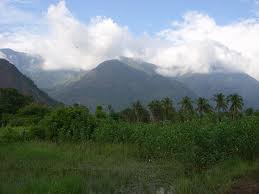
Kochi, June 25: The campaign for the nomination of 39 serial sites of the Western Ghats as a world heritage site will be renewed at the 36th session of the World Heritage Committee (WHC) which will begin at St. Petersburg on Sunday.
A decision on the nominated sites will be taken by a 21-nation panel including India. The task of the panel will be to “identify the cultural and natural properties of Outstanding Universal Value which are to be protected under the Convention and inscribe them properties on the World Heritage List.”
India has been campaigning for the inscription of the sites on the list since 2006. The 35th session of the WHC held in Paris last year had deferred its decision on nomination after considering a report of the International Union for Conservation of Nature, which evaluated the sites.
In its report, the IUCN had suggested that India “review and refine the scope and composition” of the sites and consider the recommendations the Western Ghats Ecology Expert Panel (WGEEP). It was asked to “further refine the boundaries” of the sites to ensure the “exclusion of disturbed areas” and “enhance the contiguity and buffer zones of the nomination” based on the WGEEP recommendations.
India will take the position that the WGEEP recommendations shall not be linked to the evaluation of the ghats as the government has not taken a final decision on the report, which is kept in public domain for consultation. The recommendations on land use and controls on development would be applied to the sites once the decision is taken, according to a dossier to be placed before the WHC.
It will be stressed that the panel has not made any recommendation to refine the scope and composition of the nominated sites, which include national parks, wildlife sanctuaries, tiger reserves and reserved forests. Hence the question of compliance with the panel recommendations does not arise, the document said.
The Indian delegation to Russia include Jagdish Kishwan, Additional Director General (Wildlife), and S.K. Khanduri, Inspector General (Wildlife) of the Ministry of Environment and Forest, and V.B. Mathur, Dean, Wildlife Institute of India, Dehra Dun.
Sans settlements
On the IUCN suggestion for exclusion of disturbed areas from the nominated sites, India will take the stand that “the existing reservoirs, plantations and surrounding agriculture lands are in no way impairing the identified Outstanding Universal Values (OUV) of the nominated property and it continues to be an evolutionary ecotone.”
The continuous and purposeful engagement of the local communities and indigenous groups has been ensured at all phases of the nomination. The exclusion of the existing settlements from the nominated property would “lead to their displacement and would work against the bona fide interests of the local communities,” it will be argued.
It will be stressed that a “comprehensive three-tier mechanism for the improved coordination, integration and management of sites and safeguarding its OUV” is in place. The mechanism “fully meets the intended requirement of the overarching management framework proposed by IUCN” and “ensures continuous and increased engagement of all stakeholders including the local communities” in the management of the sites, according to the dossier.





Comments
Add new comment